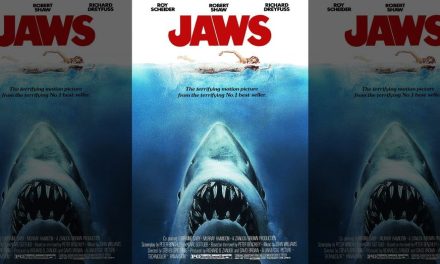Renowned ventriloquist and comedian Jeff Dunham has carved out a unique niche in the world of entertainment, captivating audiences across the globe with his distinct blend of humor and lively puppets. As the landscape of comedy continues to evolve, Dunham reflects on the challenges faced by new comedians attempting to break into the industry today. He shares two significant reasons why he does not envy them.
In recent discussions, Dunham articulated the complexities of the current industry climate, highlighting the various obstacles that modern comedians must navigate. From an explosion of digital content to shifting audience preferences, the path to success appears markedly different from when he first started his career. Dunham’s detachment from the envy often felt by countless performers stems from his deep understanding of these changes, rooted in his own experiences.
Firstly, Dunham points to the overwhelming abundance of content available today as a major hurdle for upcoming comedians. In the past, he explains, breaking into comedy often meant performing at local clubs, honing one’s skills in front of live audiences, and gradually building a fan base. However, the rise of social media and streaming platforms has drastically transformed how comedy is consumed. Now, aspiring comedians can showcase their talents through various online stages like TikTok, Instagram, and YouTube, reaching a potential audience like never before. Yet, this very advantage has turned into a double-edged sword.
“While it’s amazing that anyone can get exposure from their living room,” Dunham says, “it also means that there’s so much competition. Thousands of videos are uploaded every day, and it’s incredibly challenging to stand out in that crowd.” The noise of the digital world makes it difficult to capture and retain an audience’s attention. This saturation, according to Dunham, can lead to discouragement for many newcomers who struggle to gain traction amidst the overwhelming competition.
Additionally, this flood of comedy content has resulted in rapidly shifting trends, making it hard for comedians to establish a consistent style or following. What might be funny and popular one day could easily become irrelevant the next. For Dunham, this transient nature of digital fame deepens his appreciation for the more stable, albeit challenging, pathways of traditional comedy, where actors could develop their craft and build a loyal fan base over time.
The second pivotal reason Dunham mentions for his lack of envy is the pressure to constantly produce new content. With the digital era’s need for instant gratification and constant engagement, many comedians feel they must relentlessly churn out material to stay relevant. The quest for fresh content can lead to a burnout cycle, where performers may prioritize quantity over quality.
“When I was coming up, we didn’t have to worry about posting something new every day or performing just to keep our names in the conversation,” Dunham explains. “We had the chance to perfect our material and take our time.” This shift, in Dunham’s view, can stifle creativity. Rather than allowing comedians the space to develop their ideas maturely, they often find themselves forced into a hurried creative process that might not do justice to their talents.
Instead of nurturing a polished set of jokes that resonate over time, many aspiring comedians may feel they are racing against a ticking clock. The pressure to stay continuously relevant can ultimately hinder the development of a unique comedic voice. For Dunham, the art of comedy should involve reflection, growth, and the freedom to experiment without the burden of constant scrutiny and expectation.
Despite these challenges, Dunham acknowledges the positives of the modern comedy landscape. He recognizes the fortuitous circumstances that allow comedians of every caliber to reach a global audience. The emergence of virtual performances and online platforms can indeed serve as powerful tools for launching careers. However, he believes it’s imperative for new comedians to be strategic in their approach and remain true to their craft rather than merely chasing trends.
As he navigates his own career, Dunham continues to explore new avenues in the ever-changing world of comedy. He is constantly seeking ways to innovate while still holding onto the integrity that has garnered him a dedicated fan base. Dunham emphasizes the importance of perseverance and adaptability for anyone aspiring to make a mark in comedy today.
For those starting their careers, he advises to immerse oneself in live performances whenever possible. Engaging with a live audience can provide invaluable feedback and foster the connection that makes comedy so special. He encourages budding comedians to take the time to develop their unique voice and remain focused on delivering quality material, rather than succumbing to the pressure of rapid content creation.
In summary, Jeff Dunham’s insights on why he does not envy today’s aspiring comedians are rooted in his respect for the artistry of comedy. The vast digital landscape presents both opportunities and challenges that are distinct from those faced by prior generations. While he sees the potential for aspiring performers to thrive in this new environment, he warns against the pitfalls of diluted content and the overwhelming competition that comes with it. Ultimately, Dunham’s reflections encourage a balanced approach—one that values authenticity, quality, and the timeless principles of the comedic craft.
As the comedy scene continues to evolve, Dunham remains a steadfast figure, ensuring that the heart of comedy—connection, laughter, and shared experiences—remains intact in the face of modern challenges.
































